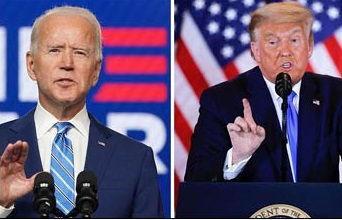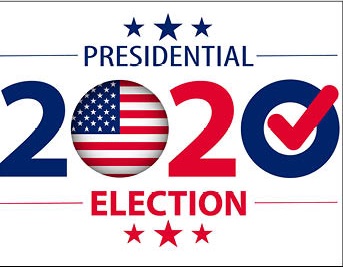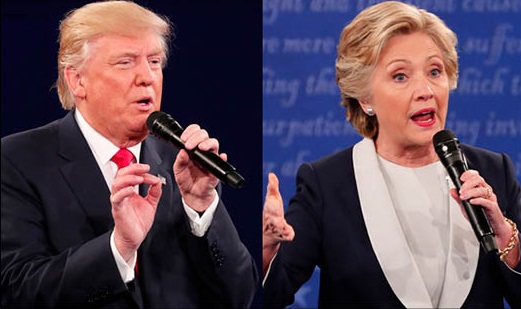Ten days before the Elections in 2016 Hilary Clinton was leading most election forecasts, for all practical purposes Trump had already lost. However a forecast is a forecast only and nothing more; an election is only decided on Election Day, everyone can make up or change his/her mind right in front of the ballot box. One of my best friends, late Frank Neuman, kept on telling me for months that Trump would win.
Because the Midwest states had gone “Democrat” for decades, Hilary Clinton took them for granted. Black and working-class white voters, particularly the ones without college education who supported the Democrats, deserted the party in droves. For them Mrs. Clinton represented the coastal elite who had grown rich without ever fulfilling their election promises regarding jobs, medical insurance and whatever else had been there was frustrating, the current model of politics had clearly outrun its utility and creditability. With rural voters turning out in high numbers, Americans who felt overlooked by the establishment and left behind by the coastal elite made their voices heard. Notwithstanding he lost the actual vote count by almost 2 million votes, The electoral votes of the mid-West states tipped the balance in favour of Republican Trump in 2020, he has stuck to his 2016 game plan.
Mocking and insulting people, he has offered half-hearted apologies and displaying a questionable attitude towards women. In the final analysis it did no damage to his votes where they mattered. Trump was offering a new political route with his ‘America first’ and the promise to create jobs, bring industries back to America and to continue with his hard-line stance on immigration is popular. In sheer contrast to his “slash and burn” style, he vowed to end the multiple wars that had not only killed the children of the common people but ate up the money needed to re-start the US economy. Present especially in the South since slavery times, white supremism has never fully retreated the latent white supremist attitude of Trump appealed to the white population without college education. With poverty on the rise in the US, education in good schools is no more feasible for many families.
America is facing a lot of internal problems, with its economic power diminishing, the US as the “policeman of the world” is not popular in the US electorate anymore. Having never left the US, the masses have no good idea about the rest of the world. Over the last four years, he has rolled back federal regulations on businesses, enacted corporate and income tax cuts, and signed executive orders supporting preferences for domestic-made products. Since January 2017, the US has added more than 480,000 manufacturing jobs, though analysts say growth in the sector is slowing down and Mr. Trump’s related policies like tariffs have not addressed the structural issues at play. Before March 2020, he was sure to be re-elected. With the US economy surging, Trump was a shoo-in for re-election. Playing the epidemic down, even predicting the economy bouncing back immediately by Easter (in April), he shunned the advice of his own experts led by Dr. Fauci. Boasting about immunity his infection with Covid 19 was not scientifically sound but typical of American bravado (John Wayne-style) that we see in western films. His opposition to lockdown is appeals to many voters who cannot afford to stay home but have to go out and earn their living. Linking the curbing of immigration levels to job creation for locals is the bedrock of the President’s political career. Eliminating the visa lottery and chain migration moving from family ties to a “merit-based” entry system, he has continued the construction of the promised US-Mexico border wall securing funding so far for 445 miles (716 km) of the 722 mile barrier.
The 2018 bipartisan “First Step Act” enacted criminal justice bill reformed laws at the federal level, giving judges more discretion during sentencing as well as strengthening prisoner rehabilitation efforts. Mr. Trump’s 2016 campaign branded himself as a firm advocate of law enforcement, this has remained so during his Presidency, most recently escalating his support of police amid the nationwide protests against racial injustice. With considerable damage to public property, the rioting and chaos has turned off droves of people who see Trump more effective in enforcing law and order.

A Hoover Institution study estimates that Biden’s economic agenda would lead to a fall in full-time employment by 3% and the per capita GDP by more than 8% with (1) 4.9 million more unemployed Americans and a $2.6 trillion drop in GDP value and (2) Biden’s proposal of increases in business tax rates would increase the cost of capital and hurt small businesses. A very recent analysis of President Trump’s chances for re-election by Brookings is estimating his chances as low but possible, W.A. Galston summarizes it this way: “Although the Electoral College results will be determined by the individual states, the 2020 election is being shaped much more by national factors than by differences among the states. President Trump will not be able to overcome Joe Biden’s current Electoral College lead, which is substantial. For this he had to reduce Biden’s national popular vote advantage to roughly the 2-point difference of 2016. The worst-case scenario is that Trump may get close to this result without equalling it, of the election in doubt will throw US into chaos.” Trump had a disastrous first Presidential Debate, the second being cancelled because of his Covid-19 infection. He came back in the third debate, not enough and too late. By Oct 23, 46 million Americans had already cast their vote. A close election early ballots, which he will most probably lose by a big margin, is what Trump will contest as “fake”.
Unlike 2016 the stakes of a lost election are high for President Trump’s him in 2020. The ongoing though paused investigation for tax evasion against him in case of his losing the election would certainly lead to his conviction something that he would certainly like to avoid. The desperation in their electioneering can be seen from both Trump and Pencedoing election rallies without masks and not quarantining despite testing “positive” for Covid-19 infection. Moreover he has been cutting down on TV ads (and even switching them from vital “swing” states) having not raised enough campaign money to pay his campaign bills. In fact if he loses the elections Trump may well have to declare “campaign funds” bankruptcy to avoid going to prison for unpaid bills. In a travesty of both justice and circumstances for this and unpaid taxes, after repeatedly calling Biden and his son Hunter “crooks” Trump may well have to depend upon a “President” Biden for Presidential pardon to avoid becoming the first former US President from going to jail. This will certainly depend upon his “behaviour” as a lame duck President once he loses. His frequent exhorting his rallies with the phrase “lock him up” may well come back to haunt Donald Trump.

With armed militias active in the Midwest a close or somewhat questionable result would lead to popular unrest and to civil war conditions. With rumours floating that President Trump could refuse to vacate his post if he loses, Section 4 of the 25th Amendment to the Constitution will be the way out. Theoretically, the Vice President and any eight Cabinet officers can decide that the president is “unable to discharge the powers and duties of his office,” put it down in writing and send to two the Speaker of the House and the Senate’s President pro tempore. If the President disputes this move, Congress will have to than settle the matter with a vote. A two-thirds majority in both Houses would be necessary to keep the vice president in charge. If that threshold isn’t reached, the President would regain his powers. Such a scenario seems not very likely and without precedent, but there could be a first time?
While US foreign policy really does not undergo radical changes, long years of experience of our transactional relationship with the US have taught us that a Republican President is more conducive for Pakistan than a Democrat. The war in Afghanistan has been of both adverse military and economic consequences. Trump is overseeing the end of it and mostly following Pakistan’s advice and support in effecting a genuine reconciliation between the Taliban and the govt in Kabul. The prime factor has been US acceptance of Pakistan’s strong opposition to India having any role in the peace process. On the other hand while as US Vice President Joe Biden has singled out Pakistan along with Russia and North Korea for making “counterproductive” moves, he also accused India of using Afghanistan as a platform against Pakistan. With Biden teaming up with Kamala Harris. She will only be a heartbeat from becoming President of the US. An Indian of Sikh origin, one will be apprehensive about her stance Pakistan. Harris last year did express understanding for the Kashmiris plight, urging India to end restrictions in Jammu and Kashmir, this was questioned by Michael Kugelman, the senior associate for South Asia at the Wilson Centre, her comments on Kashmir were “emphatic but relatively minor in frequency”, a gentle reminder that politicians’ verbal support may not show signs of tangibility.
While Pakistan is not relying now on the US that much anymore as it did once, a Democrat victory can be balanced out nicely. Holding his own in the Second Presidential Debate Biden will not actually win, less than a week before elections and (as yet) no “October Surprise” (that FBI Director James Coney managed by re-opening the enquiry into Hilary’s E Mails), Trump stands to lose in a landslide. He will take quite a number of Republic Senators and Representatives down with him, giving control of both the US Senate and the House to the Democrats. Pakistan could well one day end up coping with “President” Kamala Harris if that does come to take place. The many Trump detractors in Pakistan will then have good reason to remember him with some nostalgia.




